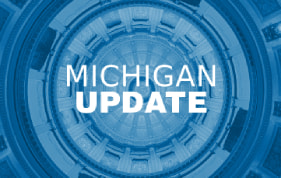This week, our In Focus reviews the Mississippi request for qualifications (RFQ) for the state’s traditional Mississippi Coordinated Access Network (MississippiCAN) Medicaid program and the state Children’s Health Insurance Program (CHIP). The RFQ, released by the Mississippi Division of Medicaid on December 10, 2021, seeks two to three health plans to serve roughly 480,000 individuals. This is the first time the state is seeking plans, which it refers to as Coordinated Care Organizations (CCOs), to jointly administer MississippiCAN and CHIP.
1855 Results found.

District of Columbia Releases Medicaid Managed Care RFP
This week, our In Focus section reviews the District of Columbia (DC) Medicaid managed care request for proposals (RFP), released on November 19, 2021, by the District of Columbia Department of Health Care Finance. The procurement will cover DC Healthy Families Program (DCHFP), including adults with special health care needs; District of Columbia Healthcare Alliance Program (Alliance); and Immigrant Children’s Program (ICP). DC expects to award contracts to up to three managed care organizations (MCOs), covering physical, behavioral health, and pharmacy services. Contract approval is expected by June 2022 and implementation in October 2022.

Changes and updates to quality and accreditation in health equity
While social determinants of health (SDOH) have been a topic of much discussion and a driver toward understanding and furthering health equity, definitions and approaches vary across the healthcare spectrum.

Missouri Releases Medicaid Managed Care RFP
This week our In Focus reviews the Missouri MO HealthNet (MHD) Medicaid Managed Care Program request for proposals (RFP), released on November 19, 2021, by the Department of Social Services (DSS). The MHD managed care program serves about 850,000 Medicaid and Children’s Health Insurance Program (CHIP) members including the state’s newly implemented Medicaid expansion population, across all regions of Missouri. Missouri’s General Plan managed care program covers TANF, CHIP, expansion and similar eligibility groups but does not include individuals with disabilities or those over age 65. The RFP also contains a separate section for a single, statewide Specialty Plan for foster children and children receiving adoption subsidy assistance. Managed care organizations must bid on and win a General Plan contract in order to be eligible for the Specialty Plan contract.

HMA report compares quality outcomes across state Medicaid program delivery models
A recently completed analysis of the impact of Medicaid managed care on key quality indicators found managed care organizations (MCO) outperformed fee-for-service (FFS) and primary care case management (PCCM) programs for both Child and Adult Core Set measures, once the data was normalized with respect to beneficiary distribution in each model.
The resulting report was in response to more states transitioning Medicaid beneficiaries from FFS to MCOs with a goal of reducing costs and improving quality. The HMA team, David Wedemeyer, Anthony Davis, Sharon Silow-Carroll, and Joe Moser, used the 2019 Centers for Medicare & Medicaid Services (CMS) Core Set of Adult and Child metrics that cross the care continuum to develop a standardization model. The model aimed to classify quality outcomes on a state-by-state basis, based on the percent of members in direct FFS arrangements, MCOs, and PCCM programs.
The analysis suggested that performance differences could be attributed to the fact MCOs have structured care coordination and specialized programs, such as disease management, population health programs, and social determinants of health programs in place. As the HMA team drilled down into sub-sections of the Core Set related to key domains such as preventive care, women’s health, disease management, and behavioral health, the findings were consistent in that MCOs tended to perform higher overall when compared to FFS and PCCM across all major domain categories.
In summary, HMA’s findings suggest that the growth of Medicaid managed care plans has led to higher quality scores in several core areas of adult and child measures, lending support to the idea that managed care has had a positive impact overall on the quality of care for Medicaid members across the country. Additionally, HMA’s review of the data and the team’s deep understanding of state oversight of managed care programs suggests that when a state strongly embraces a quality improvement framework as a long-term strategy and partners with its managed care plans on performance-based contracts, quality scores and outcomes may be stronger. The report also suggests that stronger state efforts to work with managed care plans to develop clear expectations and collaboration, while also leveraging MCOs’ access to clinical and quality data sources, may contribute to higher quality scores.

HMA report compares quality outcomes across state Medicaid program delivery models
A recently completed analysis of the impact of Medicaid managed care on key quality indicators found managed care organizations (MCO) outperformed fee-for-service (FFS) and primary care case management (PCCM) programs for both Child and Adult Core Set measures, once the data was normalized with respect to beneficiary distribution in each model.

